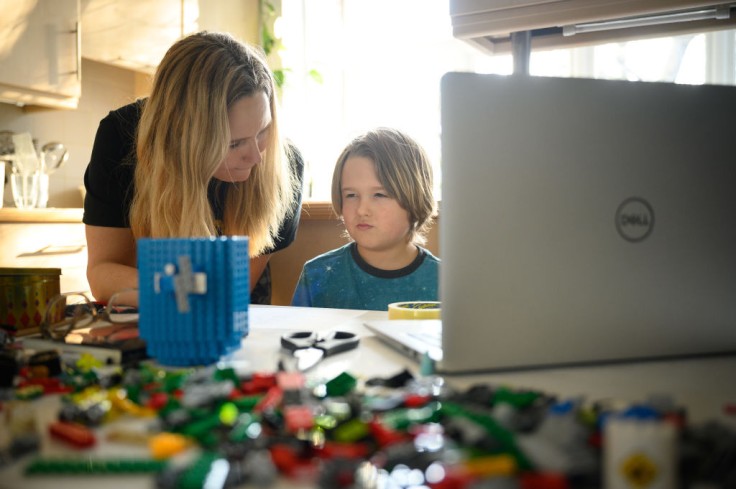
As parents, our words carry immense weight and can significantly impact our children's long-term emotional development and self-esteem. While we often use certain phrases with the best intentions, some common sayings such as "it's okay" and "practice makes perfect" can actually do more harm than good.
Read on to find out the six phrases that child psychologists and experts recommend parents avoid.
"Great Job" or "Good Boy/Girl"
Often, parents find themselves complimenting their child using "great job," "good boy," or "good girl" whenever they master a skill. While the complement can help affirm their efforts and the result, it can also make children dependent on external validation, which could prevent them from fostering intrinsic motivation. This is known as the self-deflation hypothesis and could lead to lower self-esteem among children.
Instead of throwing out generic compliments, try being more specific. For example, say, "I like how you shared your toys with your friend," or "You worked really hard on that math problem." This approach helps children understand exactly what they did well and encourages them to take pride in their efforts.
"Practice Makes Perfect"
While this phrase is meant to encourage persistence, it can actually create undue pressure on children to achieve perfection. A better approach is to focus on the process and improvement rather than perfection. Try saying something like, "The more you practice, the better you'll get," or "I'm proud of how much you've improved since last week."
"Hurry Up"
When we're rushing to get out the door, it's tempting to urge our children to move faster. However, this phrase can create additional stress and anxiety. Instead of "Hurry up," say "Let's hurry." This subtle shift makes it feel like you're working together as a team rather than issuing a command.
"We Don't Have Enough Money For That"
While it's important to teach children about financial responsibility, telling them that they can't afford something can make children feel insecure about their family's financial situation and make them feel like their parents have no control over their finances. A better approach to this would be telling them that you are saving money for more important things. Another approach would be discussing budgeting and managing finances.
"Stop Crying"
Telling a child to stop crying or to calm down lacks empathy and can teach children to deny or repress their emotions instead of acknowledging and learning how to process what they are feeling. Instead of a dismissal, say something like, "I can see you're feeling really upset. Can you tell me what happened?"
"You Make Me Sad"
When you say phrases like "You make me so mad" or "You make me sad," you are shifting the blame for your emotions onto your child and making them responsible for what you're feeling. This is unfair and can be too much for a child to handle emotionally.
Instead, use "I" statements to express your feelings and focus on the behavior, not the child. For example, "I feel frustrated when toys are left on the floor" or "I feel worried when you don't tell me where you're going." This approach helps children understand the impact of their actions without feeling shame or blame.